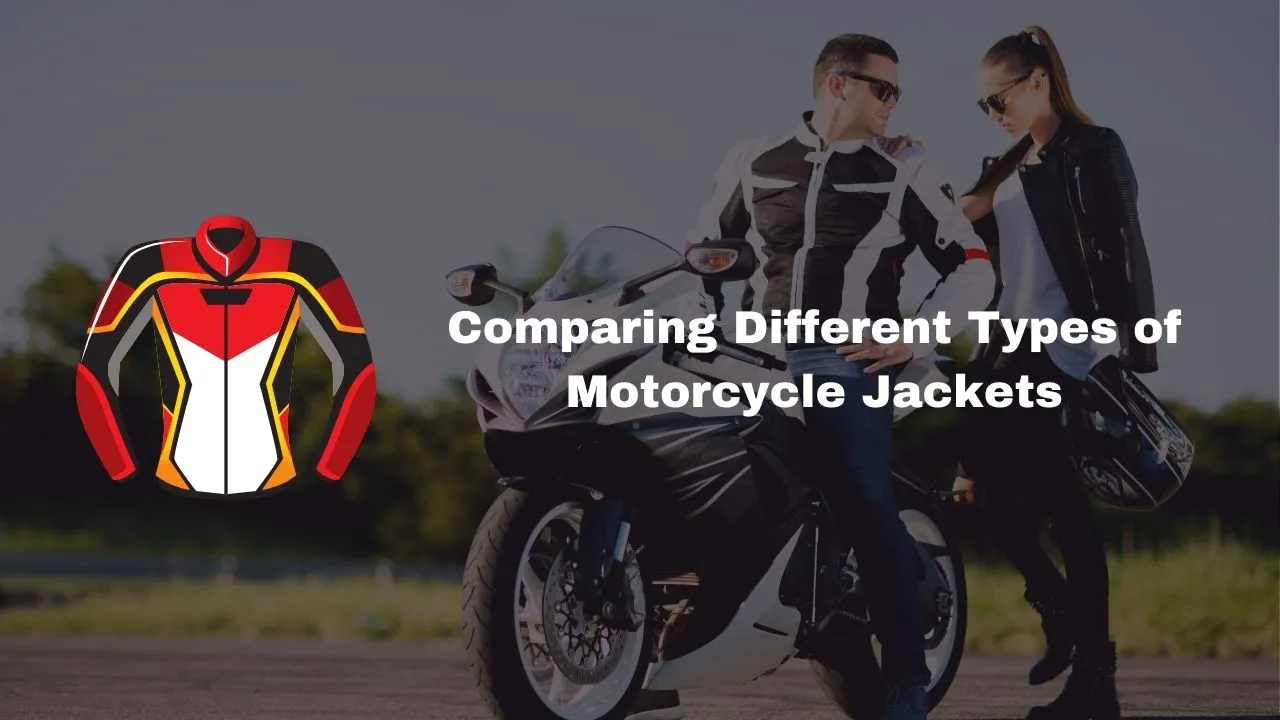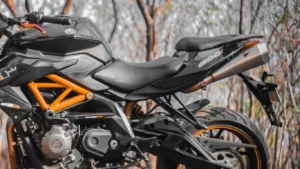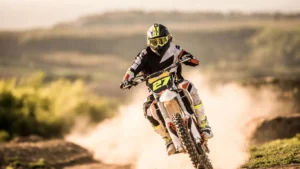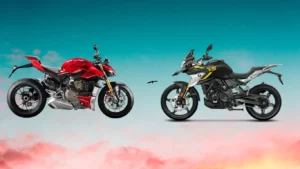When it comes to riding motorcycles, safety is paramount. One of the essential gear items every rider should invest in is a high-quality motorcycle jacket. With so many options available, how do you choose the right one? This article will take you through various motorcycle jackets, exploring their materials, features, and how they contribute to your safety on the road.
“A good motorcycle jacket is not just about looking cool; it’s about staying protected.”
Whether you’re a seasoned rider or just starting out, understanding the differences between leather, textile, and mesh jackets can make a world of difference. From impact resistance to weather protection, the right jacket can be your best riding companion.
Leather vs. Textile: Which Material Offers Better Protection?
Choosing a motorcycle jacket is one of the most crucial decisions you can make for your riding safety. Both leather and textile jackets come with their distinct advantages and features, catering to different needs and preferences. Understanding how each material contributes to protection can significantly impact your decision-making process.
Leather Jackets: Timeless and Protective
Leather has long been the gold standard in motorcycle jackets. Known for its durability and abrasion resistance, leather can offer significant protection in the event of a crash. The thick material acts as a second skin, providing a layer that can withstand sliding across pavement.
Further adding to leather’s protective qualities is the natural flexibility the material offers. This means a leather jacket can contour to your body’s shape over time, offering improved comfort along with safety. Leather jackets often come equipped with built-in armor, usually at the elbows, shoulders, and back, enhancing their protective capabilities.
Textile Jackets: Modern Innovation and Versatility
Textile jackets have gained popularity due to their lightweight nature and versatility. Made from advanced materials like Kevlar and Cordura, textile jackets provide excellent abrasion resistance comparable to leather. Moreover, many textile options come with waterproof and weather-resistant features, making them ideal for various riding conditions.
One of the significant advantages of textile jackets is their ventilation systems. Many textile jackets include strategically placed vents that allow for better airflow, which can be a crucial factor for comfort during long rides. Additionally, like their leather counterparts, textile jackets come with built-in armor in essential areas, ensuring that safety is never compromised.
Choosing the Right Jacket for You
When deciding between leather and textile, consider your riding style and environment. Leather jackets are often favored by those who ride in urban settings or those who value the classic biker aesthetic. On the other hand, textile jackets are usually the choice for adventure riders looking for versatility and weather resistance.
Ultimately, both leather and textile jackets offer robust protection. Your decision should hinge on the specific features you prioritize, such as waterproof capabilities, ventilation, and fit. Do not overlook the importance of built-in armor and additional protective features like waterproof liners and abrasion resistance, which are fundamental to keeping you safe on the road.
Innovative Features to Look For in Motorcycle Jackets
When it comes to motorcycle jackets, the right features can make a significant difference in your safety and overall riding experience. Modern jackets come equipped with various innovative attributes designed to enhance protection, comfort, and functionality. Here are some essential features to look for:
Abrasion Resistance
An important feature of any motorcycle jacket is its ability to withstand abrasion. High-quality materials like leather and advanced textiles are designed to offer excellent resistance against scraping and tearing in the event of a fall. Look for jackets that specify abrasion rating or feature panels in key impact areas such as elbows, shoulders, and back.
Waterproof Liners
Weather can be unpredictable, especially on long rides. A jacket equipped with a waterproof liner will keep you dry and comfortable during sudden rain showers. Some liners are removable, providing versatility for different riding conditions. Gore-Tex is a popular choice for waterproofing due to its breathability and reliability.
Built-In Armor
Protection is crucial, and built-in armor significantly enhances safety. Look for jackets that include CE-rated armor in the elbows, shoulders, and back. Some jackets also offer chest protectors. These armored components are designed to absorb impact and reduce the risk of injury during an accident.
Ventilation Systems
Riding can get hot, especially in the summer months. Well-designed ventilation systems featuring adjustable vents can help regulate your body temperature. Mesh panels and zippered openings in strategic locations allow for optimal airflow, making your ride more comfortable.
Comfort and Fit
The fit of your jacket is just as important as its protective features. It should feel snug yet allow for freedom of movement. Adjustable straps, waist belts, and ergonomic designs enhance comfort. Make sure the jacket fits well over any additional gear you may wear, such as a back protector.
Exploring the Safety Standards of Motorcycle Jackets
Motorcycle jackets are more than just a fashion statement; they are an essential component of riding safety. Understanding the safety standards that these jackets must meet is crucial for making an informed choice. Various organizations set these standards, ensuring that each jacket offers a certain level of protection. Let’s delve into the specifics and see what makes a jacket genuinely safe for riders.
CE Certification: A Mark of Quality and Safety
The CE (Conformité Européenne) certification is one of the most recognized safety standards for motorcycle gear, including jackets. Jackets with this certification have undergone rigorous testing to assess their durability and protective capabilities. Look for CE-labeled armor in critical areas such as shoulders, elbows, and back. This certification ensures that the jacket provides a standardized level of protection against impacts and abrasions.
Impact Protection: Armor and Padding
Many modern motorcycle jackets come with built-in armor that significantly enhances impact protection. These armor pieces, often made from materials like hard plastic or viscoelastic foam, are strategically placed in high-impact areas. Some jackets even feature removable armor pockets, allowing you to upgrade or replace the padding as needed. This feature is particularly beneficial because it provides options tailored to your specific riding needs.
Abrasion Resistance Ratings
A good motorcycle jacket should be able to withstand the harsh conditions of sliding across asphalt. Abrasion resistance is usually measured in terms of the material’s thickness and weave. For example, leather jackets are typically rated by their weight in ounces per square foot, while textile jackets may use denier ratings. High-quality materials like Kevlar or Cordura are commonly used in textile jackets to enhance abrasion resistance further.
Visibility and Reflective Elements
Visibility is another critical aspect of motorcycle safety, and many jackets incorporate high-visibility materials and reflective elements. Jackets with Hi-Viz colors can make you more noticeable to other road users during the day, while reflective strips or panels improve your visibility at night. Some jackets even feature LED lights or light-up panels for added visibility.
Weather Protection and Its Role in Safety
Inclement weather can significantly impact your safety on the road. Jackets with waterproof liners or water-resistant materials help keep you dry, reducing the risk of hypothermia and maintaining your comfort during the ride. Moreover, breathable materials that wick away moisture can prevent overheating, ensuring that you remain focused and comfortable in various weather conditions.
Top Motorcycle Jacket Brands for Quality and Safety
When it comes to picking the right motorcycle jacket, opting for a reliable brand can make a world of difference. Established brands usually focus on both safety and quality, presenting jackets that incorporate advanced materials and protection features. Let’s explore some of the leading motorcycle jacket brands celebrated for their dedication to rider safety and comfort.
Dainese: Italian Craftsmanship and Innovation
Dainese has been a leader in the motorcycle apparel industry for decades. Known for their innovative designs and high-quality materials, Dainese jackets often feature advanced protective elements such as CE-certified armor and D-air® airbag systems. Their leather and textile options are crafted to offer maximum abrasion resistance, while their ergonomic designs ensure a comfortable fit.
Alpinestars: High Performance and Safety
Alpinestars is another heavyweight in the motorcycle gear industry, consistently pushing the envelope in terms of technology and protection. Whether it’s leather or textile, Alpinestars jackets come with advanced abrasion-resistant materials, reinforced stitching, and state-of-the-art armor. Their jackets are often equipped with ventilation systems and ergonomic designs to enhance comfort and fit.
Rev’it!: Stylish and Functional
Rev’it! strikes a balance between style and functionality. Known for their well-thought-out designs, these jackets offer excellent protective features like CE-rated armor, and abrasion-resistant materials. In addition to safety, Rev’it! jackets are designed for optimum comfort with features such as adjustable fits, ventilation panels, and waterproof liners.
Icon: Aggressive and Affordable
Icon is a brand that combines aggressive styling with affordability. While they do not compromise on safety, with features like impact protection and abrasion-resistant materials, Icon jackets are also known for their bold designs and range of color options. This makes them a popular choice for riders who want to stand out on the road.
Klim: Adventure and Touring Excellence
If adventure and touring are your main interests, Klim is the brand to consider. Specializing in adventure and touring gear, Klim jackets often feature robust construction, high-quality armor, and multiple layers for all-weather protection. Comfort is also a priority with features like adjustable fits, ventilation systems, and ample storage options.
RST: British Engineering and Safety
RST is a British brand that has made a name for itself with a focus on safety and reliability. Known for their rigorous testing and high standards, RST jackets offer excellent abrasion resistance, impact protection, and comfort. Their range includes options in both leather and textile, each designed to meet various riding conditions.
Seasonal Guide: Choosing the Right Jacket for Different Weather Conditions
Finding the right motorcycle jacket for different seasons can be a game changer. While you may have one favorite jacket, having the perfect gear for each weather condition ensures comfort, safety, and an enjoyable ride all year round. Let’s dive into how you can choose a motorcycle jacket suited for varying climates.
Hot Weather: Staying Cool and Protected
Riding in hot weather can be uncomfortable if your jacket isn’t designed for it. Look for jackets with plenty of ventilation panels, lightweight materials like mesh or perforated leather, and light colors. These features will help keep you cool and reduce the risk of overheating while providing necessary protection. Additionally, prioritize UV-resistant jackets to protect your skin from the sun’s harmful rays.
Cold Weather: Insulation and Warmth
When the temperature drops, staying warm becomes crucial. Opt for jackets with built-in thermal liners and materials like leather or heavy-duty textiles that offer good insulation. Features such as windproofing, high collars, and adjustable cuffs go a long way in keeping the cold air out. Don’t forget to layer up with thermal undergarments for added warmth.
Rainy Conditions: Waterproofing and Protection
Riding in the rain requires specialized gear to keep you dry and focused. Waterproof jackets, typically made from materials like Gore-Tex or other water-resistant synthetics, are a must-have. Look for jackets with sealed seams, waterproof zippers, and removable liners that can be added or removed as the weather changes. Reflective elements are also essential for visibility during gloomy, rainy rides.
All-Season Flexibility: Versatile Choices
If you’re looking for one jacket to cover all bases, an all-season jacket might be your best bet. These jackets come with removable liners (both thermal and waterproof), adjustable ventilation panels, and a mix of materials suited for varied conditions. While they can be an investment, their versatility makes them a practical choice for riders who experience a wide range of weather.
Transitional Seasons: Adaptable Options
Spring and fall offer unpredictable weather, making it vital to wear adaptable gear. Look for jackets that offer modular layering options and plenty of ventilation. You want something that can handle chilly mornings and warmer afternoons. Convertible jackets with zip-out panels and multiple layers can provide the adaptability required for these uncertain conditions.
How Armor and Padding Enhance Rider Safety
During accidents, these features are integrated into various parts of the jacket to protect critical areas such as the shoulders, elbows, back, and chest.
Impact Absorption
Impact absorption is the primary function of armor and padding in motorcycle jackets. By distributing and softening the force during a fall or collision, these elements significantly minimize the risk of fractures and other injuries. Modern jackets often feature advanced materials like D3O and SAS-TEC, which are both flexible and highly shock-absorbent.
Strategic Placement
The placement of armor and padding is designed to shield the most vulnerable areas of your body. Shoulder and elbow protectors are standard in most jackets, while back and chest protectors may come as optional additions. This strategic placement ensures that the areas most likely to impact the ground are safeguarded, enhancing overall rider safety.
Types of Armor
There are various types of armor used in motorcycle jackets, each offering different levels of protection. Hard armor is typically made from plastic or composite materials and provides excellent impact resistance. Soft armor, on the other hand, offers flexibility and comfort while still providing substantial protection. Some jackets even feature hybrid armor, which combines both hard and soft elements for optimal safety.
Adjustability and Custom Fit
A proper fit is essential for armor to be effective. Many jackets come with adjustable armor pockets, allowing you to customize the placement and fit. This adjustability ensures that the armor remains in place during a crash, providing consistent protection across different body types and riding positions.
Removable Armor
Removable armor adds versatility to motorcycle jackets, making them suitable for both riding and casual wear. By allowing you to take out the armor when not riding, these jackets offer greater flexibility without compromising on safety when needed. This feature is particularly beneficial for multi-season jackets, where the level of protection can be adjusted according to riding conditions.
Comparing Costs: Budget-Friendly vs. Premium Motorcycle Jackets
Choosing the right motorcycle jacket often involves balancing cost with the features and protection you need. While budget-friendly options are more accessible, premium jackets come with advanced materials and cutting-edge technology. Here’s how the two stack up.
Materials and Build Quality
Budget-friendly jackets often utilize more affordable materials like basic textiles or lower-grade leather, which might compromise on durability and comfort. On the other hand, premium jackets are constructed from high-end materials such as full-grain leather or advanced synthetic fabrics like Kevlar or Gore-Tex. These materials offer superior abrasion resistance and longevity.
Built-In Armor
When it comes to safety, built-in armor can be a game-changer. Budget jackets might come with basic padding or minimal armor, often only in essential areas such as shoulders and elbows. Premium jackets, however, feature CE-certified armor not just in the shoulders and elbows but also in the back, chest, and even hips. Some high-end models include removable armor for added flexibility and custom fit.
Abrasion Resistance and Protection
Abrasion resistance is a crucial factor for rider safety. Budget options might lack advanced abrasion-resistant layers, making them less protective in high-speed crashes. In contrast, premium jackets often come with multiple layers of highly abrasion-resistant materials, drastically reducing the risk of injury.
Comfort and Fit
In terms of comfort and fit, budget jackets may offer limited adjustability, potentially leading to a less than perfect fit. Higher-end jackets usually provide adjustable straps, ergonomic designs, and advanced ventilation systems that ensure maximum comfort during both short rides and long tours. These features make premium jackets more versatile for varying weather conditions and riding styles.
Additional Features
The bells and whistles also differ significantly. Budget-friendly jackets might forego features such as waterproof liners, advanced ventilation systems, and multiple pockets. Premium jackets often come loaded with extras like integrated hydration packs, enhanced ventilation through zippered air vents, and even connectivity options for riding accessories.
Longevity and Warranty
Longevity is another area where premium jackets shine. Higher-end brands often offer extended warranties and superior customer service. These jackets are designed to last through years of riding, justifying their higher price tag. Budget options, while initially cheaper, might wear out faster, requiring more frequent replacement.
Style and Aesthetics
Let’s not forget style and aesthetics. Premium jackets are often more visually appealing, featuring sleek designs and high-quality finishes. They can make a statement while offering top-notch protection. Budget jackets, while functional, might not offer the same level of style and finish.
Overall Value
Ultimately, the choice between budget-friendly and premium motorcycle jackets boils down to what you value most—cost, features, or long-term investment. While budget jackets offer immediate affordability, premium jackets provide advanced protection, comfort, and durability, potentially making them a more valuable investment for avid riders.
Conclusion
Motorcycle jackets are crucial for rider safety, acting as a formidable shield against various threats on the road. By comparing different materials, innovative features, and safety standards, you can make an informed decision on what jacket best fits your needs and riding style. Remember, investing in a quality jacket is not just about comfort and aesthetics; it’s about safeguarding your well-being during every ride.
Brands like Dainese, Alpinestars, and Rev’it! have set high benchmarks in terms of protection, durability, and design. Whether you’re navigating hot summers, rainy days, or cold winters, there’s a perfect jacket out there tailored to your specific requirements. Equip yourself with the right jacket and ride with confidence, knowing you’ve embraced the essential gear that delivers both style and superior safety.






